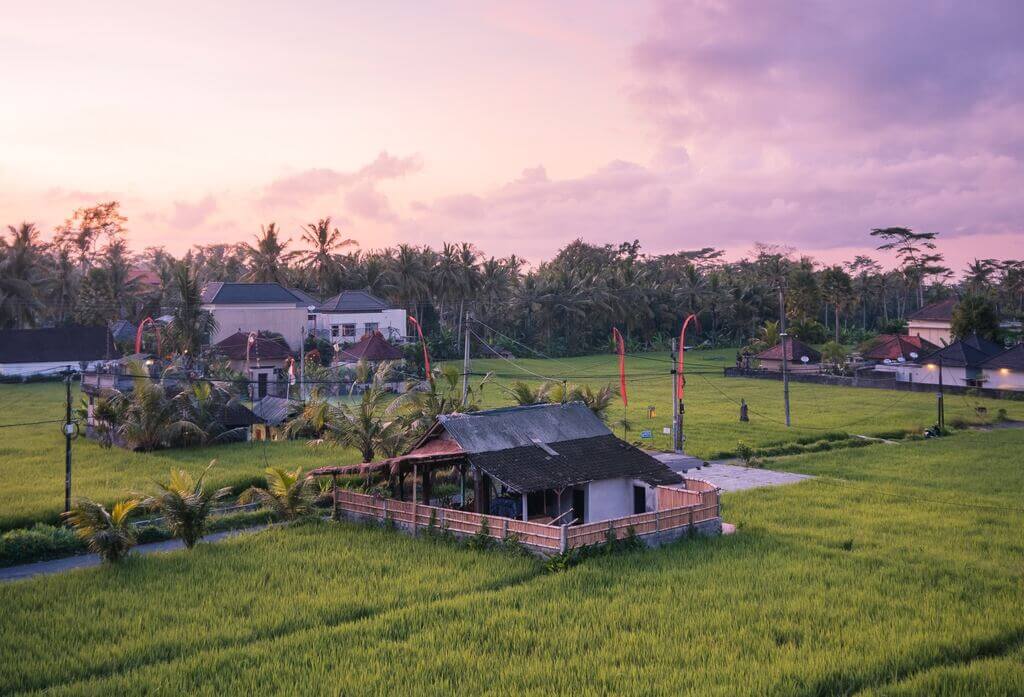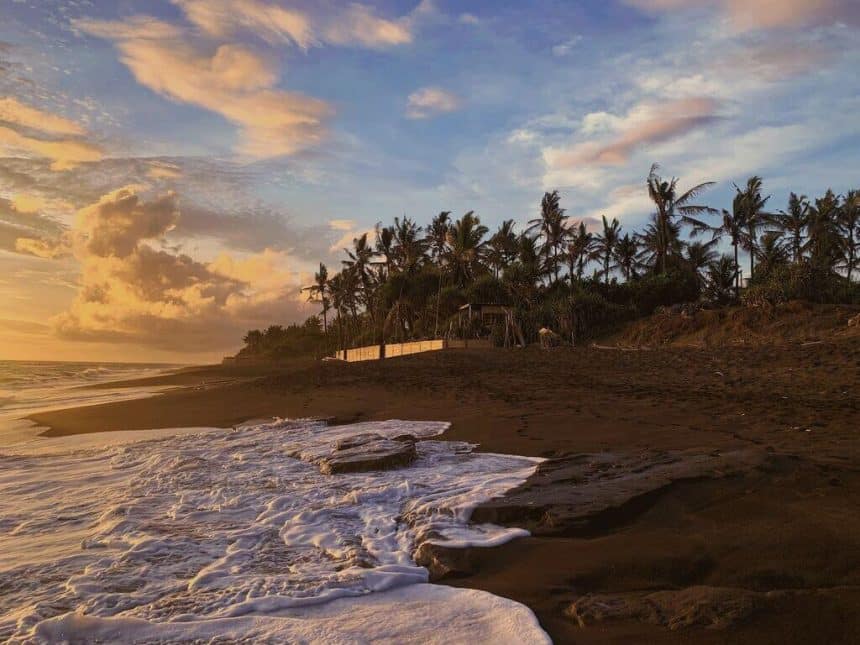Buying a villa in Bali can be an easy process and rewarding experience if approached with the right knowledge and preparation. However, the process requires careful consideration of various factors. From legal ownership to market trends, understanding these aspects can make the difference between a successful property purchase and future complications. This Bali property purchase checklist covers all the essential points you need to consider to ensure your investment in Bali is secure, profitable, and aligned with your expectations.
1. Verify legal ownership when buying a villa in Bali
Always verify the legal ownership before buying a villa in Bali, which involves checking that the seller is the legal owner and has the right to sell the villa. Also, check if all legal documents, such as land certificates and building permits, are valid and up-to-date. You can hire a legal agent or attorney to help you with the due diligence process to ensure the property is free from legal disputes or encumbrances.
2. Understand ownership types
Property ownership in Bali is limited by Indonesian law, and understanding the different types of ownership is essential. The main ownership types are Hak Milik (HM), Hak Pakai (HP), Hak Guna Bangunan (HGB), and Hak Sewa. Each type has different implications for the duration of ownership and rights over the property. For example, Hak Milik is unavailable to foreigners, who usually opt for Hak Guna Bangunan or Hak Pakai if they meet the requirements. Knowing the differences between each type helps make informed decisions when buying a villa in Bali.
3. Obtain the necessary permits
Securing the required permits is vital when buying a villa in Bali. This includes the Building Approval (PBG), formerly Building Permit (IMB), certifying that the construction complies with local regulations. Whether buying a new house or taking off an existing lease, ensure that all the building permits are in order. This legitimizes the construction and protects against potential legal issues.
4. Inspect the property condition
Besides conducting due diligence on the legal documents, conducting a thorough due diligence inspection of the property is essential. Inspecting the villa helps identify structural issues, plumbing problems, or electrical faults. The villa inspection should cover the overall maintenance of the villa, including the condition of the roof, walls, floors, swimming pool, and any installed systems. It’s wise to hire a professional inspector, such as a real estate agent, to help uncover potential hidden problems that could incur enormous costs later.
5. Evaluate the location
The villa’s location significantly impacts its value, rental potential, and living experiences. Popular areas like Seminyak, Canggu, and Ubud offer beaches, restaurants, bars, clubs, and other amenities, but they may come at higher prices. Consider the villa’s distance from essential amenities, tourist attractions, and the risk of natural disasters. Choosing a strategic location enhances your lifestyle and boosts the property’s marketability and potential for value appreciation.
6. Check infrastructure and accessibility
Before buying a villa in Bali, always check the infrastructure and accessibility of the property by evaluating the quality of the roads leading to the villa, the availability of utilities such as electricity, water, and internet, and the overall ease of access. Good infrastructure increased the property’s value, making it more attractive to potential renters or future buyers. Poor accessibility, on the other hand, can lead to inconveniences and reduce the property’s market appeal and value.

7. Analyze rental potential
If you’re buying a villa in Bali to generate rental income, you should always analyze the rental potential by researching the demand for rental properties in the area, typical rental rates, and occupancy trends. Properties in popular tourist areas with good amenities and accessibility tend to have higher rental demand and income potential, enhancing the property’s value and providing a steady rental income.
8. Community engagement
Building a good relationship with neighbors, local leaders, and the banyar can give you valuable insights into the area and help you with problems or questions. Especially in Bali, being an active and respectful community member fosters goodwill and can help resolve any issues.
9. Ensure security
Whether you live in the villa or rent it out to tenants, ensuring its security is vital. Check for existing security measures such as gates, alarms, security cameras, and security guards. Also, the overall safety of the neighborhood, including crime rates and the presence of local law enforcement, must be evaluated. You can invest in additional security features to give yourself peace of mind and make the property more attractive to potential renters.
10. Compliance with zoning laws
Zoning regulations in Bali dictate the types of structures that can be built, land use, and property modifications. Violating the zoning regulations can result in fines or legal disputes, so before buying a villa in Bali, always verify that the villa adheres to all local zoning laws and obtain any necessary permits for renovations or changes.
11. Understand market trends
Market trends in Bali tend to shift quickly, making it essential to understand the current trends when buying property. Researching the market trends includes researching property price trends, demand patterns, and future development plans in your villa’s location. Understanding these trends can help to identify the best time to buy and potential areas for the most profitable real estate investment.
12. Investigate local regulations
Investigating local regulations ensures you comply with all legal requirements when buying a villa in Bali. The process includes understanding foreign ownership restrictions, tax obligations, and rental rules. In Bali, local regulations might differ for each area, so always communicate with the banyar or a local real estate agent.
13. Estimate the return on investment (ROI)
Estimating the Bali property’s ROI involves calculating the potential income from the property against it. This estimation consists of estimating the potential revenue and calculating the potential profit after deducting the initial and ongoing costs. Consider factors such as rental income, property appreciation, and maintenance expenses. Properties in high-demand areas, such as Canggu and Seminyak, tend to offer a higher ROI. A thorough financial analysis helps set realistic expectations and make informed investment decisions.
14. Villa insurance
Securing villa insurance in Bali is essential to protect your investment from potential risks such as natural disasters, theft, and damage. Comprehensive insurance coverage can include protection for the structure, contents, and liability for accidents that may occur in the villa. Be sure to choose a reliable insurance provider and understand the terms and conditions of the policy before signing anything.
15. Property enhancements
Making improvements to the property can increase the villa’s value and appeal, improve the living experience, and make the villa more attractive to potential renters or buyers. Consider improvements such as modern fixtures, eco-friendly features, and aesthetic upgrades, which can lead to higher rental income and property appreciation.
Get more help with buying a villa in Bali
Are you interested in buying a villa in Bali? Own Property Abroad is here to help you and ensure a smooth and stress-free property purchasing process. Our Bali property buying checklist and expert team will provide valuable assistance as you navigate the complexities of the real estate market in Bali. To learn more about how we can assist you, please provide your details below or email us at [email protected].
Frequently Asked Questions (FAQs)
What do you need to buy a house in Bali?
To buy a house in Bali, you need to verify legal ownership, understand the types of property ownership available for foreigners, secure the necessary permits, and ensure compliance with local regulations. Engaging a local notary and legal advisor is highly recommended.
What are the costs associated with buying a villa in Bali?
Costs associated with buying a villa in Bali include the purchase price, taxes, notary fees, agent commissions, and maintenance expenses. Additionally, budgeting for potential renovations and unexpected costs is advisable.
How do I ensure the property has all the necessary permits?
To ensure the property has all the necessary permits, verify the presence of a Building Approval (PBG) and other legal certifications. Consulting with a local notary or legal advisor can help confirm the property’s compliance with local regulations.
What is the process for getting Building Approval (PBG)?
The process for getting Building Approval (PBG) involves submitting architectural plans to local authorities, ensuring compliance with zoning laws, and paying the required fees. Hiring a professional to navigate this process is recommended.
What should I look for during a property inspection?
During a property inspection, check the structural integrity, plumbing, electrical systems, and overall maintenance. Hiring a professional inspector can help identify hidden issues and ensure the property is in good condition.




